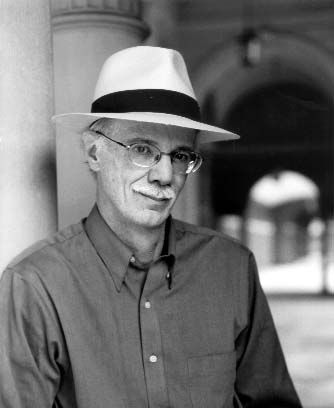: los mejores libros del 2008,
the new york times
En la categoría de ficción, este año el New York Times consideró a los siguientes como los "más notables" libros del 2008 publicados en inglés. Se trata de una short-list atípica (por tener en primer puesto un libro de cuentos fantásticos de Millhauser) pero políticamente correcta, como les gusta a los gringos (cuota de género, racial, cultural e idiomática debidamente cubiertas). No sorprende que la "Bolaño-manía" haya tocado la cima en esta lista (para dejar en claro lo extraordinario de este fenómeno hay que recordar que al mercado editorial estadounidense sólo se traduce de un 2 a un 3 por ciento al año de literatura escrita en otra lengua). Entre los dos premios Pulitzer, Jhumpa Lahiri y Junot Díaz (cuya novela fue la que más disfruté este año junto a Dietario voluble de Vila-Matas), hay un abismo de diferencia: la tradicional y pulcra prosa de Lahiri contra el experimental y sucio spánglish de Junot. Yo me quedaría con el más arriesgado: Junot Díaz.
Dangerous Laughter
(Thirteen Stories)
By Steven Millhauser.
In his first collection in five years, a master fabulist in the tradition of Poe and Nabo kov invents spookily plausible parallel universes in which the deepest human emotions and yearnings are transformed into their monstrous opposites. Millhauser is especially attuned to the purgatory of adolescence. In the title story, teenagers attend sinister “laugh parties”; in another, a mysteriously afflicted girl hides in the darkness of her attic bedroom. Time and again these parables revive the possibility that “under this world there is another, waiting to be born.”
A Mercy
By Toni Morrison.
The fate of a slave child abandoned by her mother animates this allusive novel — part Faulknerian puzzle, part dream-song — about orphaned women who form an eccentric household in late-17th-century America. Morrison’s farmers and rum traders, masters and slaves, indentured whites and captive Native Americans live side by side, often in violent conflict, in a lawless, ripe American Eden that is both a haven and a prison — an emerging nation whose identity is rooted equally in Old World superstitions and New World appetites and fears.
Netherland
By Joseph O’Neill.
O’Neill’s seductive ode to New York — a city that even in bad times stubbornly clings to its belief “in its salvific worth” — is narrated by a Dutch financier whose privileged Manhattan existence is upended by the events of Sept. 11, 2001. When his wife departs for London with their small son, he stays behind, finding camaraderie in the unexpectedly buoyant world of immigrant cricket players, most of them West Indians and South Asians, including an entrepreneur with Gatsby-size aspirations.
2666
By Roberto Bolaño.
Translated by Natasha Wimmer.
Bolaño, the prodigious Chilean writer who died at age 50 in 2003, has posthumously risen, like a figure in one of his own splendid creations, to the summit of modern fiction. This latest work, first published in Spanish in 2004, is a mega- and meta-detective novel with strong hints of apocalyptic foreboding. It contains five separate narratives, each pursuing a different story with a cast of beguiling characters — European literary scholars, an African-American journalist and more — whose lives converge in a Mexican border town where hundreds of young women have been brutally murdered.
Anaccustomed Earth
By Jhumpa Lahiri.
There is much cultural news in these precisely observed studies of modern-day Bengali-Americans — many of them Ivy-league strivers ensconced in prosperous suburbs who can’t quite overcome the tug of traditions nurtured in Calcutta. With quiet artistry and tender sympathy, Lahiri creates an impressive range of vivid characters — young and old, male and female, self-knowing and self-deluding — in engrossing stories that replenish the classic themes of domestic realism: loneliness, estrangement and family discord.




